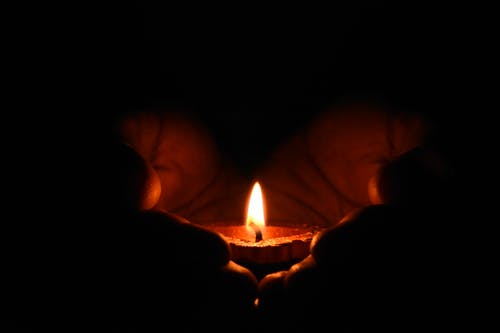When it comes to topics like addiction and alcoholism often our pride gets the best of us and keeps us living in the shadows of shame. The shame. Shame of our hope deprived. Shame that we or someone we love is enslaved to a substance that is wreaking havoc on their lives and ours. Shame that choices and decisions lead to physical harm or even death.
Can we be real for a moment? Can we confront what is? Can we pause and look at the facts and data of what we are facing as a nation, and a people, and as believers?
In 2018, 19.7 million Americans age 12 and older had a substance abuse disorder. Annually 88,000 people die an alcohol related death. 40% of hospital beds are used to treat patients with illnesses caused by alcohol consumption. In 2018, 18 million people need treatment, but do not receive treatment for substance abuse. (Stats taken from American Addiction Centers website).
Staggering.
Why did the 18 million not receive treatment? There may be a thousand reasons. But as I see it, it comes down to shame. Shame in admitting there is a problem that we cannot fix on our own. Shame admitting we need help.
We hide, we ignore, we deny the truth and reality our families face. If 18 million people need treatment – then conservatively speaking each life impacts at a minimum three others, leaving 54 million plus people impacted by substance abuse and its aftermath that are potentially not receiving much needed help.
The undercurrent of societal norms and acceptance of drug and alcohol related activities heap even more coals on the fire of shame – because social drinking or drug use is acceptable. Unless you are a guy or girl who is the 1 in 20 who become addicted. Who doesn’t want to be “normal” and “fit in” with the trend of happy hours and tailgating? Our desire to “fit in” and be on trend can lead us to ignore the reality of the struggling men and women around us.
My ministry with Ascent to Hope is to help dismantle the layers of shame that surrounds substance abuse. To recognize it for what it is, what it is rooted in and to help break down the walls of shame. As these shame-filled walls are broken down we can begin to live in the light, with the light comes freedom. Living in the light allows for healing, hope and help.
How will this dismantling happen? First, it takes one. One person to stand up and say, our lives have been changed forever, we have struggled in the dark with a loved one who was enslaved to alcohol. I am the sister. We are the family. It takes one to start a community of people to say enough is enough and you are not alone in your struggle.
Second, the dismantling of shame begins with being honest, raw and real enough to participate in hard conversations and to admit this is not the path we had in mind. It starts with admitting that this is not the picture we had in mind for our family, but this is our reality. This is our truth.
Shame keeps us trapped in darkness. Shame causes silence, it deprives us of hope, it causes fear of being exposed. But when we allow the shame to overpower us and the pride of all we envision to discolor our vision of reality the epidemic grows.
Third is recognizing the impact of the choice to live in the dark. The impact is 88,000 men and women dying annually. That is 241 people per day that die because of alcohol related diseases and sicknesses. 241. Ten people per hour.
Finally, knowing the truth of God’s word and that living in shame is not God’s best for us. Luke 8:16-17(AMPC) says, “No one after he has lighted a lamp covers it with a vessel or puts it under a couch; but he puts it on a lamp stand, that those who come in may see the light. For there is nothing hidden that shall not be disclosed, nor anything secret that shall not be known and come out into the open.”
If I were completely honest with you I have been avoiding writing this blog because I have to admit to myself that I am in the process of letting go of my shame and accepting what is enough to be able to talk about it. I know that God is using the dismantling of my shame for His glory and He is writing a deeper testimony in my life because of its exposure.
I am one whose life has not turned out how I pictured it to. I am one whose shame has been exposed to the light. I chose to expose it because I want to be well. I want to live in the light and receive the healing that Christ has for me. When we have a testimony written in our life, a hard circumstance we have worked through with His help, and then don’t talk about it because we are ashamed we walked through it are we hiding a lamp under a basket? Or are we putting our testimony on a lamp stand?
What if your greatest shame is your biggest testimony for the glory of God? What if your biggest testimony is never told because shame keeps you trapped in silence? Will you allow your testimony, the shameful thing you have walked through and been set free from to be set on a lamp stand for God to receive the glory? What does it look like to exchange your shame for a testimony? Is it your own? Is it the shame of the choices another person made that has impacted you? Can you let go of the shame and pick up a piece of your testimony?
This week I pray that each person who reads this blog is empowered to shed shame. I pray you will spend time thinking about the shame you are carrying and allow God the opportunity to bring healing and to give you the words for your testimony.


I have dealt with shame for years from my son’s addiction. Sometimes I think I have a handle on it, then it creeps back in. Most people don’t see it as a true illness but rather a life style choice. With that thinking comes the shame that I have let him down. Thank you for this blog.
Thank you for your blog. Our family has dealt with this for many years and my brother has been the outcast of a few of our siblings which breaks my heart. Recently due to circumstances beyond my control he dropped off the face of the Earth so to speak. I got word today that he’s been contacted and had recently been in the hospital and found out he has congestive heart failure due to the abuse to his body. This has shaken him to make the decision to give up alcohol. Now my concern is his soul. He was a bright outgoing kid growing up and new the Word inside out. Thank you for being real and sharing your heart. This has opened my eyes. God’s peace and love to you and your family.❣️?